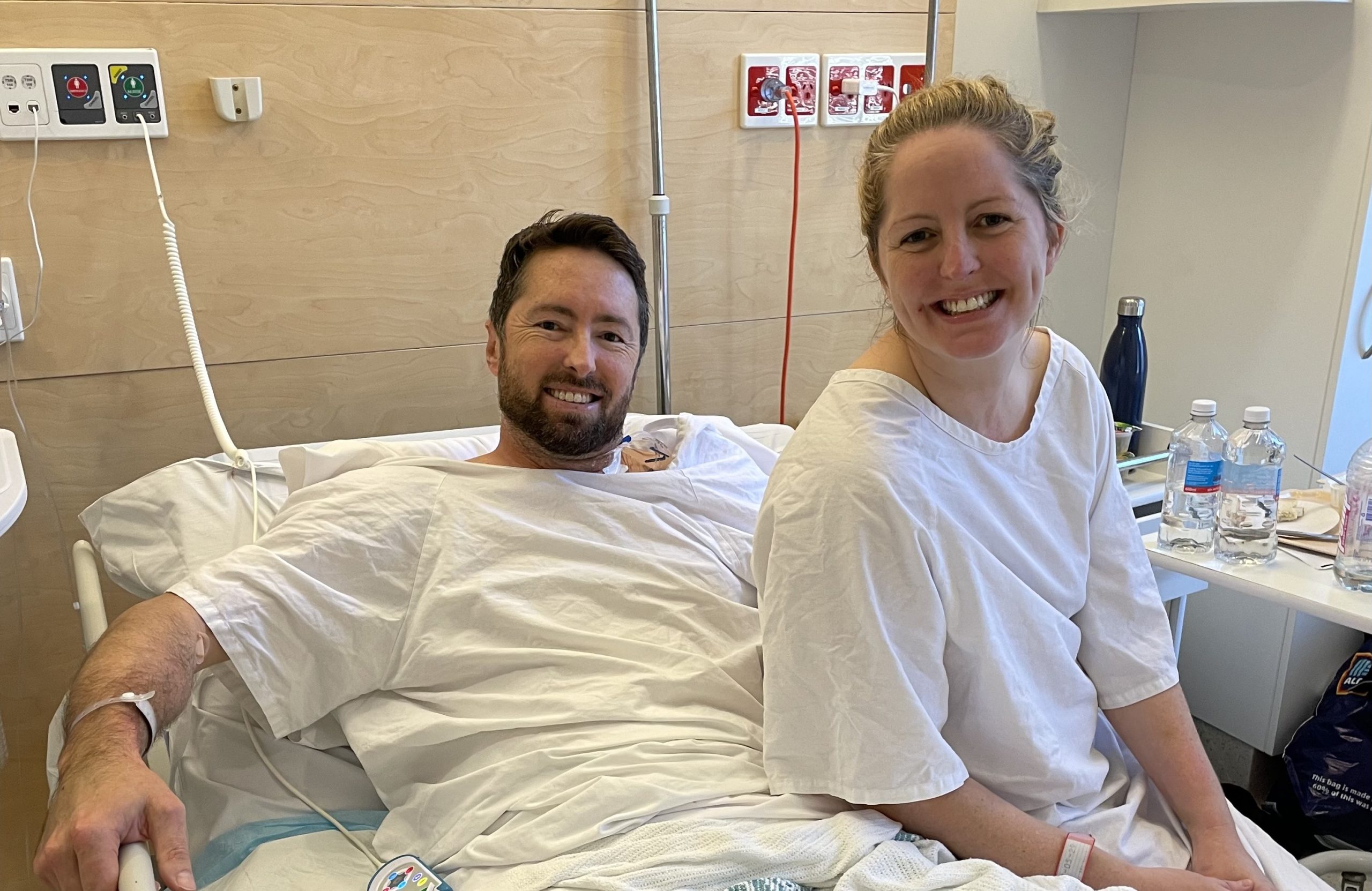
In July 2023, Mitch’s sister unconditionally donated one of her kidneys to him in a life changing selfless act.
There were 713 kidney transplants in 2022, however there are 1,450 Australians on the waiting list.
Mitch was an active teen, always competing in a variety of school sports. At 16 years of age, he developed pneumonia.
A chest and abdomen scan showed he had large kidneys for his age and after further scans, he was diagnosed with polycystic kidney disease (PKD) where fluid filled cysts grow inside the kidneys, reducing kidney function and eventually leading to kidney failure.
PKD is usually inherited, however he had no known family history of kidney disease.
“I was told my kidney function would deteriorate over time,” said Mitch, “but as it was in the future, I put it to the back of my mind and carried on with my life.”
Besides annual checkups with his kidney specialist, he followed a low salt diet and was prescribed low-level blood pressure tablets. Mitch was on a clinical trial for tolvaptan (Jynarque) which slowed the growth of cysts when he was in his mid-20s. For the next 20 years, Mitch continued to experience a gradual decline in his kidney function, however it did not require intervention.
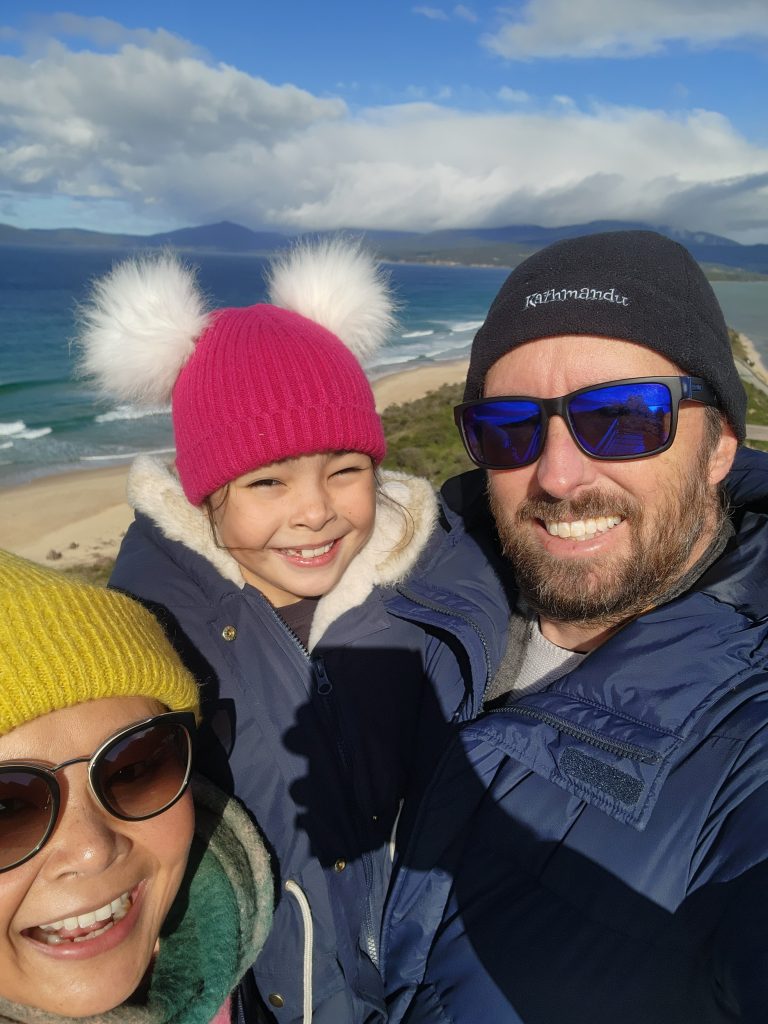
Mitch with Jade and Charli mid dialysis
During this time, to ensure the gene wasn’t passed down through his children, he and his wife Jade had preimplantation genetic diagnostic testing during IVF to eliminate PKD. Mitch says he is grateful their daughter Charli, who is now eight years old, doesn’t have to worry about passing on the condition to her future children.
In early 2022, Mitch’s kidneys had increased in size and were placing pressure on other organs. In addition, his kidney function was now in steady decline. Mitch was advised that he should start to consider regular dialysis or a kidney transplant.
“With my family in Melbourne, it was easier to write to them to explain my situation and that if they wanted to be a living kidney donor, they could test to see if they were compatible,” said Mitch. “I advised them that I don’t expect them to be a donor, but they may want to consider the tests as a health check.”
Mitch’s parents were in their early 70’s and his older brother had a large melanoma removed from his shoulder, so they advised him they were not able to participate. Without his knowledge, his younger sister Yolana had commenced the testing process.
“My sister casually mentioned she was going through the testing process. She didn’t tell me initially because she wanted to find out if she was in a healthy position to offer one of her kidneys,” said Mitch. By January 2023, Mitch had to stop work as his kidneys had doubled in size, crushing his stomach and liver, which made him very tired and only able to eat small meals.
The following month, Yolana advised Mitch that tests confirmed she was a compatible donor and that the transplant would be taking place. Of all transplanted kidneys in Australia, 24% are from living donors. Mitch was extraordinarily grateful to his sister and thanked her many times for the selfless gift she was about to give him.
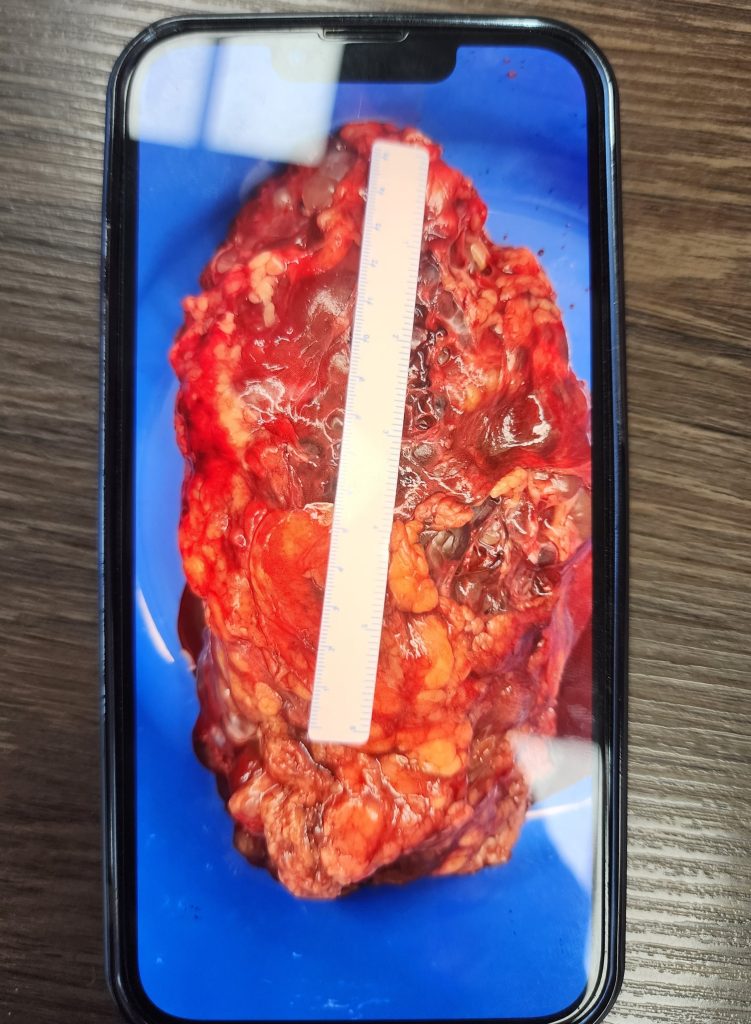
Mitch’s kidney removed
While they wanted for the transplant to be scheduled, urologist Dr Justin Vass removed Mitch’s right kidney at Royal North Shore Hospital (RNSH) in a procedure known as a nephrectomy. Mitch was surprised when he was told the kidney they removed measured a massive 22 cm by 15 cm – more than double the size of a normal kidney. Going through the painful recovery, Mitch wanted to ensure his sister was fully aware of the discomfort she would endure post-surgery.
“I tried to warn her, as I had experienced what she would be going through. The donor certainly has a worse time than the recipient. But she was very blasé saying that she’s given birth, and it can’t be as bad as that,” said Mitch.
Following surgery, Mitch had 8% kidney function and required twice weekly dialysis to support his one remaining kidney to remove the extra fluid and waste from his blood.
With Yolana in Melbourne and Mitch in Sydney, they needed to undergo a crucial tissue test on the same day to determine their compatibility. Mitch proudly says that they were the perfect match – blood, tissue and antibodies. It meant that the long-term rejection drugs that Mitch must take will be lower as he’s less likely to have acute rejection of the donor organ.
If his sister wasn’t a match, Mitch was resigned to the fact that he would be on dialysis until he received a kidney donation.
Yolana and Mitch were admitted to RNSH on 13 July 2023.
“That night, Yolana came to my room, and we had a chat. It was a nice moment to share before the operation,” said Mitch.
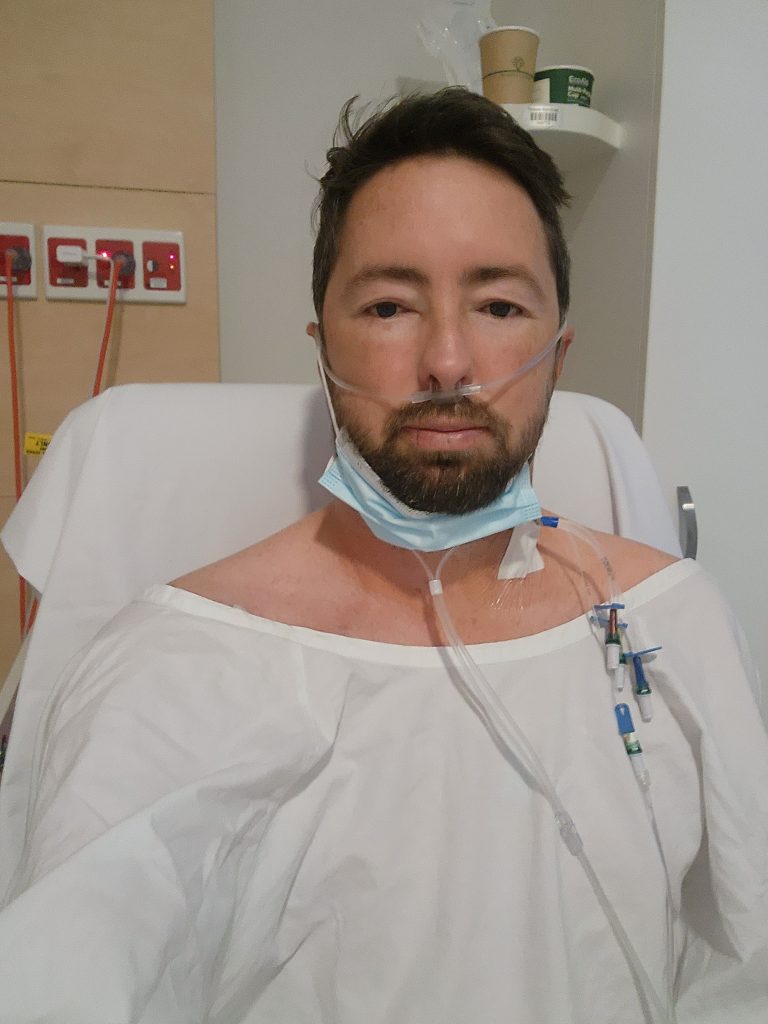
Mitch, a day after transplant
The next day Yolana’s surgery was scheduled an hour prior to Mitch. The crossover of her kidney to Mitch was less than 20 minutes and the surgery on Mitch by vascular surgeon, Dr Vikram Puttaswarmy and his renal team lasted for four hours.
“The renal team were amazing,” said Mitch. “They always explained everything they were doing, and I was never concerned. Besides being specialist doctors, they were nice genuine people too and it was great they were able to provide support to my family and answer any questions they had.”
“The nursing staff have an important medical job to do,” said Mitch, “but they also have an incredibly warm human side and tried not to disturb you too much so you could rest.” A few days after the procedure, Mitch visited Yolana whose bed wasn’t far from his. As he advised Yolana, her recovery was taking a little longer than his, but she didn’t have any complications other than being slightly nauseous from the pain relief medication.
They were both discharged from hospital after a week and Yolana stayed in Sydney for another 10 days for follow up appointments. Mitch says it was a lovely time for their young children to spend time together.
Post surgery, Mitch required daily blood tests for six weeks and he has returned twice to RNSH with infections which were treated with intravenous (IV) antibiotics. He has developed new-onset diabetes as a side effect of the steroids he needs to take; however, he was advised the conditions should stop once the quantity of steroid medication is reduced.
“When I visit, the nursing staff at Royal North Shore Hospital greet me by name, and it’s a comforting feeling that they know me and the history of my illness.”
Mitch now hopes to gradually return to work as a production manager at Opera Australia and one sport that he has had to temporarily put on hold – surfing.
From their shared experience, Mitch developed a stronger bond with his sister and wished she lived closer so their children could have more time together. They speak regularly and can talk about things they wouldn’t have talked about before.
“It’s a gift that’s certainly changed my life and I will always be grateful for her unselfishness in donating one of her kidneys to me,” explains Mitch. “I’ve said thank you to her so many times, but it doesn’t seem enough. I will have to really have to put more thought into the gifts I give her for her birthday and Christmas!”
If you would like to say thank you to healthcare staff for the care they provided to you or a loved one, please make a donation here.
